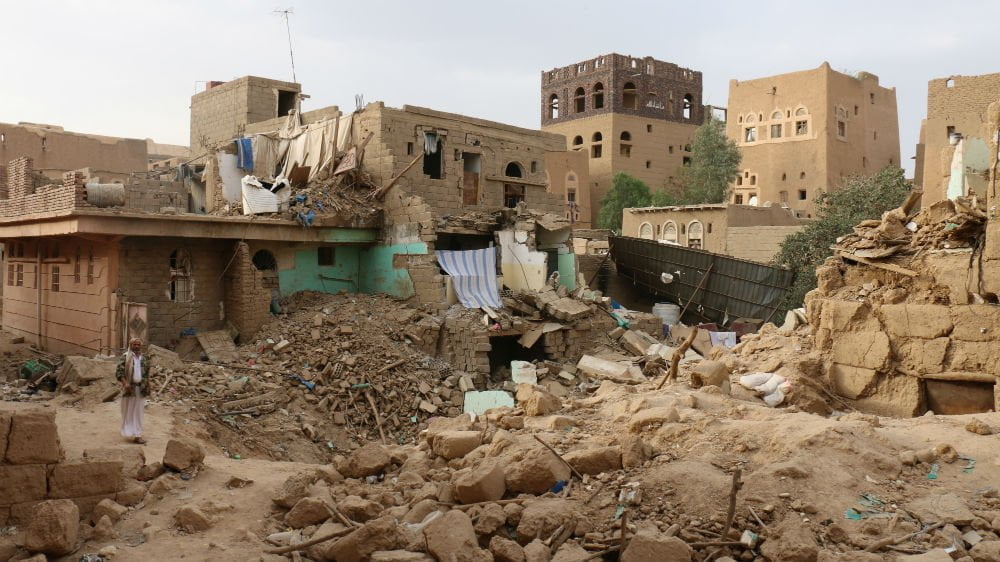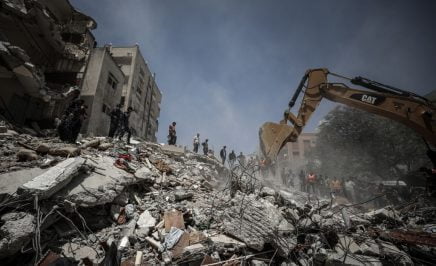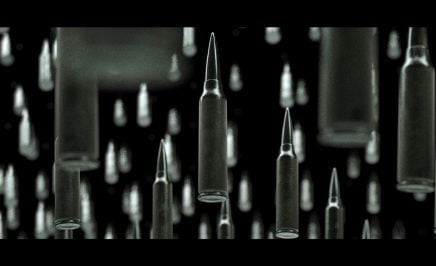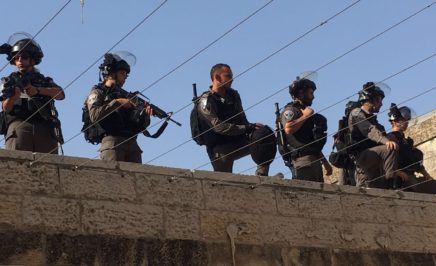-
There must be an embargo on the export of all weapons, munitions, military equipment and technology that can be used in the Yemen conflict
-
The Australian Government must not be complicit in human rights violations in Yemen and must immediately implement an arms embargo on Saudi Arabia.
-
An independent, impartial inquiry into all reported violations is urgently needed and all those responsible for crimes under international law must be brought to justice in fair trials.
Amnesty International reveals today that it was a United States-made bomb that destroyed a residential building in Yemen’s capital killing 16 civilians and injuring 17 more, including the parents and all five of five-year-old Buthaina’s siblings (whose photograph in the aftermath of the strike is here).
Amnesty International’s arms expert analysed remnants of the weapon and found it bore clear markings that matched US-made components commonly used in laser-guided air-dropped bombs.
The 25 August airstrike hit a cluster of houses in Sana’a, severely damaging three of them, and killing seven children including all five of Buthaina’s brothers and sisters. Eight other children were injured, amongst them was two-year-old Sam Bassim al-Hamdani, who lost both his parents.
“We can now conclusively say that the bomb that killed Buthaina’s parents and siblings, and other civilians, was made in the USA,” said Lynn Maalouf, Research director for the Middle East at Amnesty International.
“There simply is no explanation the USA or other countries such as the UK and France can give to justify the continued flow of weapons to the Saudi Arabia-led coalition for use in the conflict in Yemen. It has time and time again committed serious violations of international law, including war crimes, over the past 30 months, with devastating consequences for the civilian population.”
Australia’s arms sales to Saudi Arabia and its allies
Australia approved four military export licenses to Saudi Arabia in the past 12 months alone and has taken further steps to further expand its military exports to the kingdom. The Saudi-led military coalition has been involved in an ongoing conflict in Yemen since March 2015, and has conducted numerous attacks that have violated international humanitarian law, including indiscriminate and disproportionate airstrikes that have killed and injured many civilians.
Australia is obliged under the Arms Trade Treaty not to authorise weapons transfers to countries where there is an overriding risk these weapons could be used to commit or facilitate serious violations of international human rights or humanitarian law.
Amnesty International Australia’s Crisis Campaigns Coordinator Diana Sayed said, “This is yet another horrific example of the ongoing atrocities that are occurring in Yemen by all parties to the conflict. We urge the Australian Government to publicly report the exact nature of all arms transfers to the Kingdom of Saudi Arabia to date and to its allies in the war in Yemen, and cease the authorisation of any future arms transfers while there remains a substantial risk these arms will be used to fuel human rights abuses.
“It is unacceptable that the Australian government denies transparency in its arms sales to Saudi Arabia while Saudi is committing shocking human rights abuses in Yemen, along with its coalition partners.”
Amnesty International is calling for the immediate implementation of a comprehensive embargo to ensure that no party to the conflict in Yemen is supplied with weapons, munitions, military equipment and technology that can be used in the conflict. An independent, impartial inquiry into reported violations is urgently needed and all those responsible for crimes under international law must be brought to justice in fair trials.
Background
After examining photographic evidence provided by a local journalist who dug out the remaining fragments of the weapon at the site, Amnesty International’s arms expert was able to positively identify the data plate from a US-made MAU-169L/B computer control group. It is a part used in several types of laser-guided air-dropped bombs.
According to the Defence Security Cooperation Agency, in 2015 the US government authorised the sale of 2,800 guided bombs to Saudi Arabia that were equipped with the MAU-169L/B computer control group, including GBU-48, GBU-54, and GBU-56 guided bombs.
“She had five siblings to play with. Now she has none” – Ali al-Raymi
The Saudi Arabia-led coalition launched the devastating attacks at around 2AM in Faj Attan, a residential area in Yemen’s capital Sana’a.
Ali al-Raymi, 32, lost his brother Mohamed al-Raymi along with his sister-in-law and his five nieces and nephews aged between two and 10 years. His niece, five-year-old Buthaina, was the sole survivor.
He told Amnesty International: “When you ask her ‘what do you want?’, she says ‘I want to go home’… She thinks that if she goes home, she will find them [her family] there… She had five siblings to play with. Now she has none… What kind of sorrow and pain could she be feeling in her heart?”
The Saudi Arabia-led coalition has admitted to carrying out the devastating attack, but maintains that the civilian casualties were the result of a “technical error”. The coalition claims it targeted a “legitimate military objective,” which belonged to the Huthi-Saleh forces.
According to local residents, one of the buildings in the area was frequented by a Huthi-aligned individual. Amnesty International was not able to confirm his identity, role or whether he was present at the time of the attack.
However, even if there were military objectives in the vicinity, international humanitarian law prohibits disproportionate attacks, including those expected to kill or injure civilians.
The Saudi Arabia-led coalition spokesperson also said that the incident had been referred to the coalition’s Joint Incidents Assessment Team (JIAT) for further investigations. To date, Amnesty International is not aware of any members of the coalition taking concrete steps to investigate, take disciplinary measures against or prosecute officers suspected of criminal responsibility for war crimes.
“The coalition’s complete disregard for civilian lives, as well as their lack of commitment to effective investigations, highlights the need for an independent international inquiry to look into alleged violations of international law,” said Lynn Maalouf.
“It is shameful that instead of holding the coalition accountable for their actions in Yemen, key allies including the USA and the UK have continued to supply it with huge quantities of arms.”
Since February 2016, Amnesty International has urged all states to ensure that no party to the conflict in Yemen is supplied – either directly or indirectly – with weapons that would be used in the conflict. It has also repeatedly called for an international independent investigation to be conducted into all alleged violations of international law committed by all parties.
According to the United Nations Office of the High Commissioner for Human Rights’ (OHCHR) annual report on Yemen, 1,120 children have been killed and 1,541 injured since the beginning of the conflict in March 2015. In the past year alone, more than half of these child casualties were attributed to the coalition airstrikes.
The Huthi-Saleh forces, as well as anti-Huthi forces on the ground, have also committed violations international humanitarian law and human rights abuses. According to the OHCHR, the Huthi-Saleh forces are responsible for the majority of child casualties caused by ground fighting, shelling and the use of banned antipersonnel landmines.



